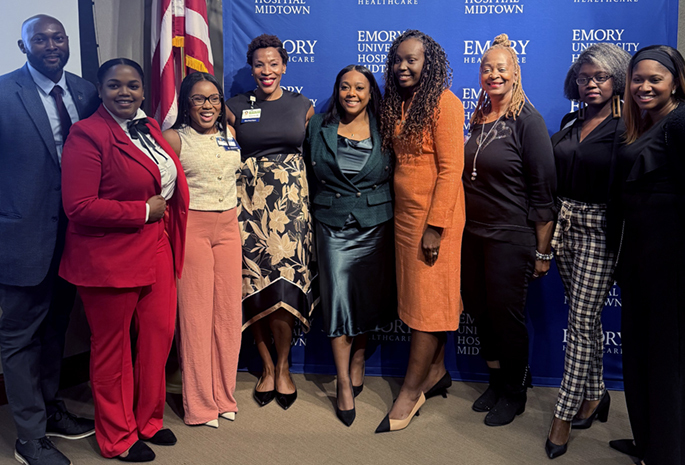Chioma needed advanced care throughout her pregnancy. This is known as maternal-fetal medicine, a subspecialty of obstetrics and gynecology that specializes in caring for women and unborn babies who are at high risk for complications.
“The Emory Perinatal Center offers a full scope of maternal-fetal medicine care,” she says. “We create an individualized plan for each patient and meet their needs where they are. That’s important for every patient, but particularly for those with the most complicated pregnancies.”
A multidisciplinary team of specialists collaborates to provide personalized care for each patient. Depending on a patient’s needs, the care team can include experts in cardiology, endocrinology, mental health and neonatology to name a few. For urgent concerns, patients can often schedule same-day appointments.
For Chioma, Dr. Badell’s diligence and the compassion of her care team set Emory apart, especially navigating a high-risk pregnancy.
“I had a wonderful delivery at Emory with my daughter. But my experience with Phoenix was even better,” she says. “In addition to Dr. Badell, every single nurse I had was very compassionate and very attentive.”
Today, Chioma’s son Phoenix is vibrant and vocal, enjoying lots of love and attention from his mom, dad and big sister. A pediatric team of specialists continues to work with the family as Phoenix grows.
Specialist care for high risk pregnancy
Emory Healthcare's maternal-fetal specialists support women through every step of their pregnancy journey. Visit Emory Healthcare Perinatal Center for more information.



